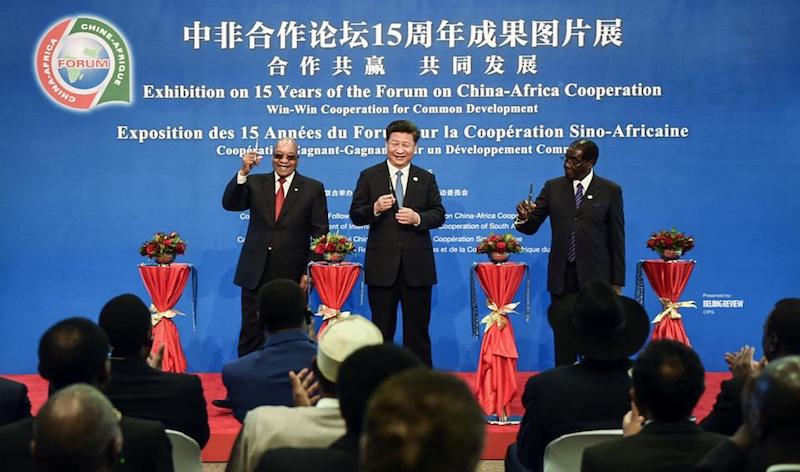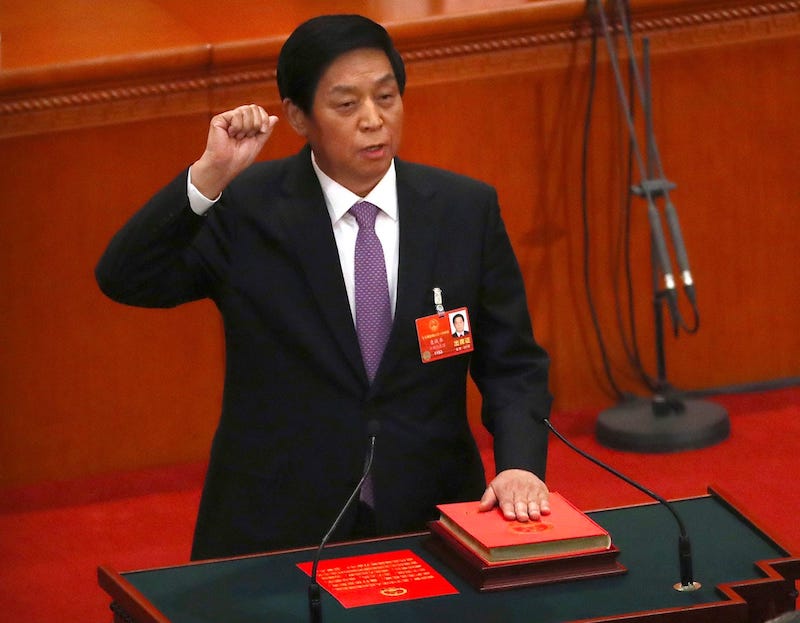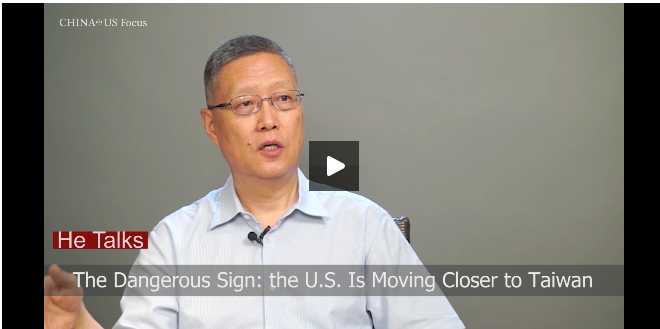
 Forum on China-Africa Cooperation Yields New Pledges
Forum on China-Africa Cooperation Yields New PledgesDuring his address at the Forum on China-Africa Cooperation in Beijing on Monday, President Xi Jinping pledged $60 billion to over 40 African countries, stating that the large sum came with no expectations. The aid is speculated to be dispersed in a variety of ways: interest-free loans, grants, concessional loans, and credit lines. Xi explained that the money would fund a number of projects seeking to speed up the continent's development; from agricultural and vocational training to government scholarships and medical aid, rather than being devoted to "vanity projects." Additionally, the Chinese leader announced that debt from certain Chinese interest-free loans would be written off for Africa's poorest countries; a relief for these nations as payment on these loans would have been due at the end of the 2018.
While Xi's announcements were celebrated by some, others characterized the flow of new aid from China to Africa as the continuance of a 'debt trap' economic policy, in which poorer countries agree to heavy debt burdens in the long-term (which they struggle to pay back) in exchange for large sums of capital in the short-term. China has denied such claims, and President Xi himself noted at the Forum that, "China's investment in Africa does not come with any political conditions attached and will neither interfere in internal politics nor make demands that people feel are difficult to fulfill."
In the latest episode of the exclusive At Large podcast, host James Chau utilized the comments of Botswana's President Mokgweetsi Masisi to illustrate the African view of cooperation with China. Regarding his country's relationship with China, President Masisi said, "When you look at his [Xi's] policy of interacting with Africa in a non-intrusive manner, without conditionalities; it's very attractive to adopt that model, to adopt such a partner for our own development." Listen to the full episode for James' further insights as well as comments from former Ethiopian Minister of Foreign Affairs and the current Director-General of the World Health Organization on our website.
 Top Chinese Official to Travel to Pyongyang for North Korea's 70th Anniversary, and it's not Xi
Top Chinese Official to Travel to Pyongyang for North Korea's 70th Anniversary, and it's not XiThis coming Sunday, North Korea is set to celebrate the 70th anniversary of its founding, leaving observers to speculate whether President Xi Jinping would make an appearance in the country after three visits earlier this year. The Chinese Communist Party put the rumors to rest on Tuesday, announcing that Li Zhanshu, head of the National People's Congress would be traveling to Pyongyang for what could be the largest celebrations of Foundation Day since 2011.
The Associated Press noted that analysts believed the choice to send Li, rather than Xi, reflects China's sentiments toward North Korea's slow progress toward denuclearization. At his historic summit with President Donald Trump in June, Chairman Kim Jong-un pledged to, "work toward complete denuclearization"; a commitment he re-emphasized in comments to a South Korean envoy this week, stating he wants to denuclearize North Korea before President Trump's term ends. Despite these commitments, President Trump has blamed China for lack of movement in denuclearization talks, implying that the nation has encouraged North Korea to slow its efforts, and pushed Secretary of State Mike Pompeo to cancel a trip to the peninsula, noting Pyongyang's insufficient progress.
In a symbolic communication of disappointment, it is uncertain whether China's decision to send a third-ranking official, rather than President Xi himself, will have a notable effect on the North Korean leadership. However, as China-US Focus contributor Doug Bandow notes, even if Kim's declarations of denuclearization were falsehoods, "that would simply reflect Kim's rational self-interest: how to best protect his regime? That would not be China's fault."
 Expanding Chinese Military Capacity to be Tested at Vostok
Expanding Chinese Military Capacity to be Tested at VostokExtensive modernization of the People's Liberation Army and Navy culminated in an invitation to the 2018 Vostok war games, a series of military exercises that host country Russia has characterized as an "unprecedented military exercise" involving upwards of 300,000 troops and 900 tanks.
Earlier this year, China's first domestically-produced aircraft carrier set sail, one part of a larger piece of the nation's military advancement efforts. By devoting resources to the expansion of its 'blue water' naval capabilities, Chinese security forces have become "capable of controlling the South China Sea in all scenarios short of war with the United States," according to the commander of the the United States Indo-Pacific Command, Adm. Philip S. Davidson. Although security advance has been rapid, China's military spending in 2018 was drastically lower than that of the U.S.: $175 billion compared to the newly approved U.S. military budget of $700 billion, as noted in the China-US Focus video, "Is China's Navy a Threat?"
The newly minted Chinese military capabilities will now be tested at the 2018 Vostok war games, hosted by fellow Shanghai Cooperation Organisation member, Russia. Carried out from September 11 to 15 in the country's eastern sections, the Vostok games have been billed as Russia's largest military exercise since the Cold War. China's Ministry of Defense noted that this was an opportunity solidify the countries' strategic partnership, while other observers have noted that China's invitation to the games highlights a key shift in regional security. While in the past, China may have been viewed as a potential threat to the parties of such an event, at Vostok, Xi's military will be greeted as a friend or even, "a quasi-ally;" a previously unprecedented circumstance.
 This Week's Top Commentary: He Yafei on TaiwanIn our new video, He Yafei examines the dangerous signs the U.S. is exhibiting as it pushes the envelope on the "One China" policy. The former vice minister of the Overseas Chinese Affairs Office of the State Council argues that the U.S. is attempting to undermine Chinese policy by implementing new measures like the Taiwan Travel Act and the Defense Authorization Act. "It will be a serious confrontation because, for China, it is a matter of sovereignty. One of very few matters where China has no room for negotiation," he predicts. Watch his full commentary on our website.
This Week's Top Commentary: He Yafei on TaiwanIn our new video, He Yafei examines the dangerous signs the U.S. is exhibiting as it pushes the envelope on the "One China" policy. The former vice minister of the Overseas Chinese Affairs Office of the State Council argues that the U.S. is attempting to undermine Chinese policy by implementing new measures like the Taiwan Travel Act and the Defense Authorization Act. "It will be a serious confrontation because, for China, it is a matter of sovereignty. One of very few matters where China has no room for negotiation," he predicts. Watch his full commentary on our website.
Prepared by China-US Focus editorial teams in Hong Kong and New York, this weekly newsletter offers you snap shots of latest trends and developments emerging from China every week, while adding a dose of historical perspective.
- 2018-08-31 BRI’s Fifth Anniversary Comes Amidst Debate Over Sustainability
- 2018-08-24 Trade Talks Continue in DC as New Tariffs Hit
- 2018-08-17 Trade Talks Back On
- 2018-08-10 American Natural Gas Industry Braces for New Chinese Tariffs
- 2018-08-03 Tentative Signs of U.S.-China Cooperation at the ASEAN Summit
- 2018-07-27 President Trump’s Trade War Bailout
- 2018-07-20 Xi Charms the World
- 2018-07-13 China Defends WTO Record in the Face of Additional U.S. Tariffs
- 2018-07-06 The Trade War Begins
- 2018-06-29 President Trump Chooses Slightly Softer Option on Chinese Investment
- 2018-06-22 Trade Tensions Spark Stock Sell-Off in China
- 2018-06-14 How “Comprehensive” Is the Kim-Trump Agreement?
- 2018-06-08 China Awards Putin First Medal of Friendship
- 2018-06-01 USPACOM Rebranded As U.S. Indo-Pacific Command
- 2018-05-25 Trump Cancels North Korea Meeting
- 2018-05-18 The On/Off Trump-Kim Summit
- 2018-05-11 American Goods Are Stuck at Chinese Ports
- 2018-05-04 China and the U.S. Lay Trade Demands on the Table
- 2018-04-27 U.S. Delegation Will Visit China Next Week
- 2018-04-20 China and the U.S. Seek Allies in Trade Dispute
